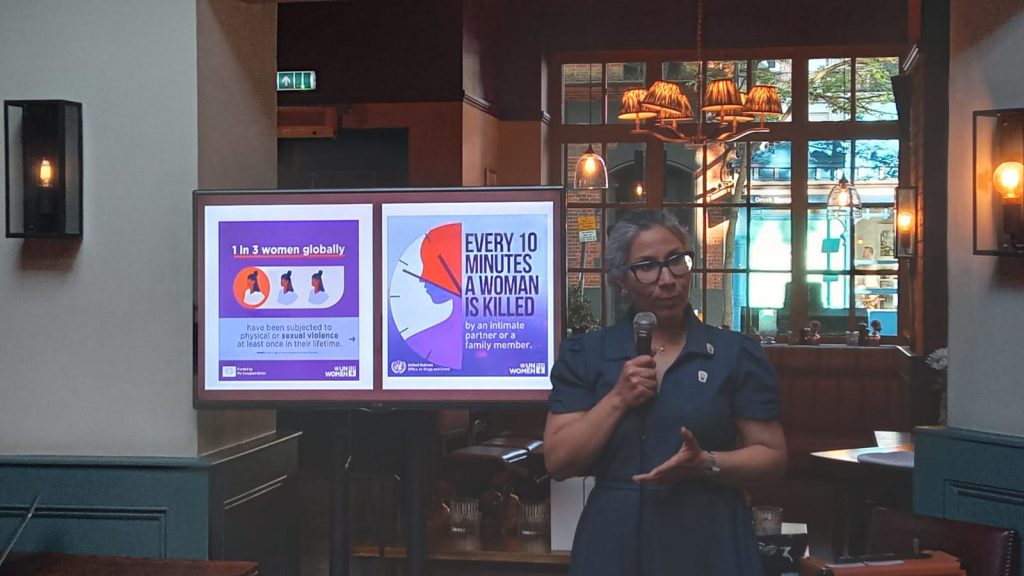On a balmy May evening, VISION researchers Dr Anastasia Fadeeva and Dr Ladan Hashemi had the pleasure of presenting at Pint of Social Science, an engaging public event held at a local pub. The event, organised by Caroline (Cassie) Sipos, Business Development Manager for the School of Policy and Global Affairs, City St George’s University of London, was part of the broader Pint of Science movement.
This event, one of many on the same night, is an annual global festival bringing academic research into informal, accessible spaces such as pubs or cafes. The environment enables researchers and the public to connect over important social issues, drinks, and conversation.
Anastasia showcased her research on violence against older people, an often-overlooked area of abuse and harm. She spoke about different forms of violence in older age, including physical, emotional, and economic, and discussed the social and structural barriers that allow this violence to remain hidden. Anastasia also shared the findings from the recent study that measured the prevalence of violence in older age and the associations between violence and mental health in later life. The talk concluded with calls for stronger protective measures and greater public awareness to safeguard the dignity and wellbeing of older populations.
Ladan shared the Breaking the Silence campaign, which uses culturally sensitive animations to amplify the voices of women in Iran affected by violence. Grounded in a survey of 453 Iranian women, the campaign highlights the widespread and multifaceted nature of violence against women and girls, and the urgent need for greater awareness and legal reform. Through powerful storytelling, the animations address issues such as coercive control, economic abuse, and technology facilitated abuse, while promoting the role of active bystanders and signposting available support services. The campaign aims to break taboos, raise awareness, and foster dialogue about women’s rights and freedoms in Iran.
The evening provided a lively and welcoming space for thoughtful conversations and personal reflections. The audience was engaged with both talks, asking insightful questions—often the kind that don’t come up in professional or academic settings. Pint of Social Sciences was a reminder of the value of public engagement and the importance of making research accessible beyond academia. Events like this help to build understanding and inspire collective action towards a more just and informed society.

For further information, please contact VISION_Management_Team@citystgeorges.ac.uk
Photographs: Top – Dr Anastasia Fadeeva; Above – Dr Ladan Hashemi